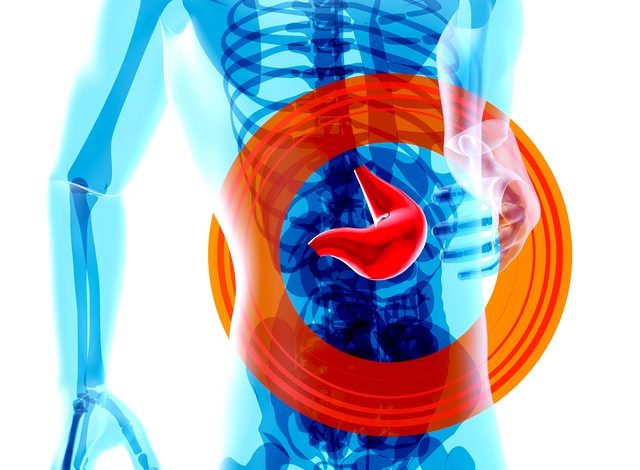Sleep deprivation and your health
One of the most important things in life is a good night’s sleep. How much you need varies by age and gender, but how long it takes to recover from a major sleep loss will depend on your unique circumstances. However, a major consequence of lack of or irregular sleep is reduced cognitive function, which can lead to impaired decision-making, from overeating and binge drinking to engaging in risky sexual behavior. This can manifest itself in numerous ways, including irritability, poorer driving performance, or delinquent behavior such as vandalism.

So, what does all this mean? If you’re tired all the time, your health may suffer long-term since there’s not enough time for proper recovery and essential functions require sleep. If you’re already in poor health, sleep deprivation can make it harder for you to recover from conditions such as heart attacks or strokes since your body is not able to repair itself.
Sleep deprivation’s effects are real; the human body needs sleep just as it needs food and water. Research has shown that sleep deprivation can lead to reductions in performance of up to 40%, and it is common for people to do worse on critical tests like driving or performing complex tasks after just a few nights without sleep.
But should we really be doing this to ourselves? It’s not just the impact on performance that’s bad; doctors have linked chronic sleep problems with an increased risk of heart disease, obesity, depression, and even Alzheimer’s. Sleep deprivation has also been shown to increase the risk of death from heart disease by up to 26 times in the short term (just minutes) and increase mortality by around 10% in the long term. In other words, it’s not worth risking your health in this way. The evidence is clear that healthy sleep is essential for good health, and a lack of sleep can hurt you both in the long and short term.
So, what can you do about sleep deprivation?
If you’re having trouble getting to sleep or staying asleep, be sure to talk to your doctor about things like lifestyle changes, diet, or medication. Oftentimes simple adjustments like a better mattress or avoiding caffeine can help you get back on track.
If these measures don’t help, then consider speaking with your doctor about possible pharmacological treatment or non-pharmacological treatments such as cognitive behavioral therapy techniques that may work better for you. Talk to your doctor to see what can be done for you.
What are the negative effects of sleep deprivation?
1. Sleep Deprivation Can Lead to Behavioral Changes
Sleep deprivation is a serious issue: In fact, working through the night can cause behavioral changes in people. The hormone cortisol helps regulate blood pressure and the immune system but can also increase aggression. Having less than six hours of sleep per night for a period of five days led to increased cortisol levels in some recent studies, which has been shown to lead to increased aggression.
2. Fatigue Can Reduce Your Ability to Make Rational Decisions
When you’re tired, thinking clearly and making good decisions becomes much harder. Think for a moment about how many times you’ve heard of people making bad decisions after being awake for long periods: Think about how many times you’ve made a bad decision after being awake for longer than usual. Studies have shown that even after getting the recommended amount of sleep each night, decision-making ability will still be reduced to some degree if you don’t get a certain amount of sleep on an ongoing basis.
3. Sleep Deprivation Can Cause Slowed Response Times
While driving, an inability to make quick decisions can have dire consequences. Studies have shown that driving while tired can cause a driver’s response times to slow. Even if they’re aware of their slowed response times, they will still be slower than normal, which can cause them to make worse decisions while behind the wheel. Even after they’ve gotten a few hours of sleep and feel better, their slower response times will remain even when they feel alert. Studies show that it could take up to 20 minutes before their brain is fully awake and functioning well again once they’ve been asleep for some time.
4. Sleep Deprivation Can Lead To Increased Risk Of Heart Disease
One bad habit that has been linked to increased heart disease risk is lack of sleep. Studies have shown that people who sleep less than six hours a night are at a greater risk for heart disease than those who get the recommended seven hours of sleep. Many heart disease experts recommend getting eight hours of sleep each night, as they feel it’s the most amount of rest that you can possibly get and still be able to function well enough to do an average day’s work.
5. Lack Of Sleep Can Increase Risk of Road Traffic Accidents
A lack of sleep can also affect the way you drive and make it more likely that you’ll have a traffic accident in the future, especially while driving at night or while taking a long, winding road. Being tired can also lead to risky driving behavior by making some drivers more aggressive or impatient. You can easily see how dangerous these drivers could be on the road late at night after having not slept all night.
6. Lack of Sleep Can Have Side Effects On Your Heart
Those who sleep poorly may be passing up a lot of other positive health benefits from sleep, like helping to lower your cholesterol and decrease your risk of stroke. Not only does a lack of sleep lead to increased heart disease risk, but it can also lead to an increased risk of developing diabetes. Those who sleep less than six hours a night are twice as likely to develop diabetes as those who get the recommended amount of rest each night.
7. Lack Of Sleep Can Lead To Weight Gain
Lack of sleep is the perfect excuse for not exercising, and you’re more likely to put on weight when you don’t exercise. Even if you do make time for exercise, your brain may not be able to function well enough after a certain amount of time without sleep, thanks to something called “sleep inertia,” which prevents you from thinking clearly enough to work out right after waking up.
8. Lack Of Sleep Can Lead To A Decrease In Protein Synthesis
Lack of sleep can seriously impact your body’s ability to function properly in other ways. It can have effects on protein synthesis, which is the process that helps your body build new tissue and cells. People who try to keep up with a strenuous exercise routine when they’re not getting enough sleep are likely decreasing their likelihood of becoming injured by falling off balance and hurting themselves when their brain doesn’t work as efficiently as it normally does.
9. Lack Of Sleep Can Lead To Increased Risk For Mental Illness
Being tired from lack of sleep is often seen as a logical enough excuse for those who have little in the way of mental disorders like depression or PTSD. But as it turns out, individuals who don’t get enough sleep each night are actually much more likely to develop a mental illness than those who do. Tiredness and mental health are closely linked — further studies indicate that not getting enough sleep can greatly impact the brain’s limbic system, which is responsible for making you feel motivated and happy.
10. Sleep Deprivation Can Increase Your Risk Of Death
If you’re ever unlucky enough to be involved in a car or work accident, or if you become sick from something unrelated to poor nutrition, lack of sleep could increase your chances of death from these events. Studies have shown that people who sleep poorly are more likely to die from their injuries over time than those who get a good night’s rest. While the exact reason for this is still being studied, there is some evidence that it has something to do with the body’s natural ability to repair itself while it’s asleep. All of these reasons make it pretty clear why doctors recommend getting a full night’s rest each and every night: When you’re tired, your health, mental well-being, and your social life all take a noticeable hit.


